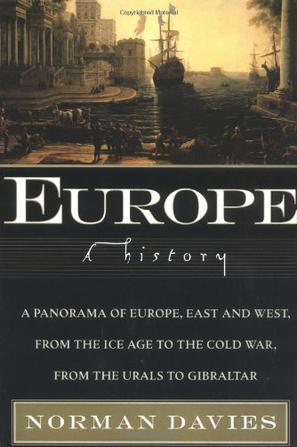内容简介
With Europe: A History, University of London professor Norman Davies has undertaken the near impossible: a synthetic one-volume overview of Europe from prehistory through the present. Remarkably, he has succeeded. Europe: A History is a conventional narrative, proceeding forward in time at a gradually decelerating pace. (The beginning covers millions of years of prehistory, while the final chapter discusses the 46 years between World War II and the book's publication.) But Davies's writing--vigorous, incisive, and confidently knowledgeable--carries the reader along, while the steady sweep of the main narrative is broken up by "capsules," boxed passages examining particular places, customs, or issues that cut across chronological lines. Davies, who has written two books on Polish history, also gives the eastern part of Europe its due coverage, unlike many of his predecessors, and manages to include commoners and the persecuted or ignored in his story along with the mighty and the royal. Europe: A History won't please everybody, but it's a highly intelligent, superbly readable overview that is certain to become a standard text. --This text refers to an out of print or unavailable edition of this title.
The pre-eminent scholar of Polish history, Davies (God's Playground and Heart of Europe) expands his focus to all of Europe. While the book is bulky, its size is hardly adequate to a complete history of the continent from pre-history to the dismantling of the Soviet Union. In addition, as one might expect, Davies has taken great pains to treat countries other than England, France and Germany as legitimate parts of Europe?not just as the thresholds over which barbarians crossed. ("For some reason it has been the fashion among some historians to minimize the impact of the Magyars," Davies writes when discussing what would become central Europe. "All this means is that the Magyars did not reach Cambridge.") The book works because his subject is not the constituent countries but the continent as a whole. Thus, while Elizabeth I gets one brief mention in passing, Aristide Briand, the French foreign minister who tried to effect a Franco-German reconciliation until the Nazis won power, gets several paragraphs. Aside from defining what Europe is and giving all countries their due, Davies also tries to show the joys of an inclusive reading of historical subjects (he disparages excessive specialization and writes admiringly of the Annales school). A master of broad-brushstroke synthesis, Davies navigates through the larger historical currents with the detail necessary to a well-written engaging narrative.
Copyright 1996 Reed Business Information, Inc. --This text refers to an out of print or unavailable edition of this title.
【展开】
【收起】
下载说明
1、追日是作者栎年创作的原创作品,下载链接均为网友上传的的网盘链接!
2、相识电子书提供优质免费的txt、pdf等下载链接,所有电子书均为完整版!
下载链接

